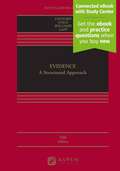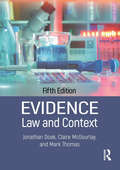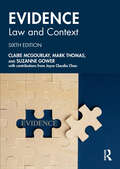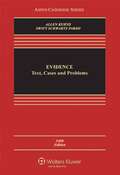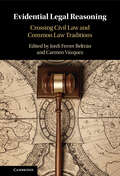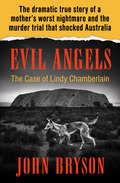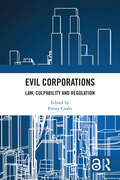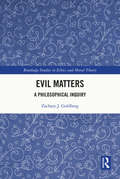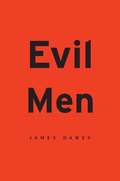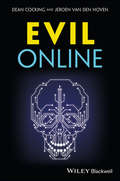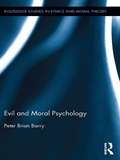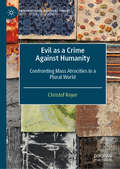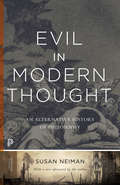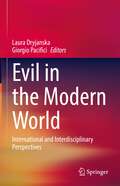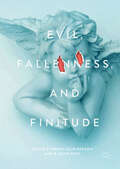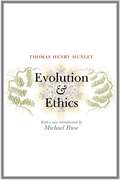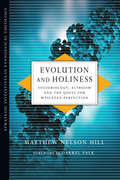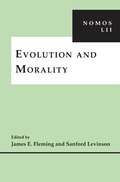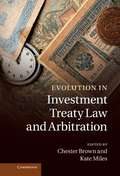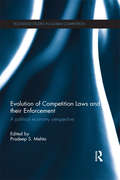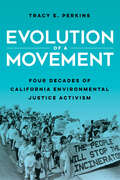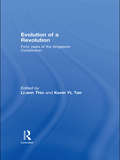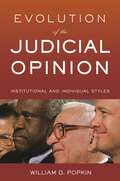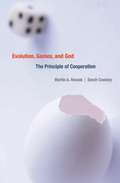- Table View
- List View
Evidence: A Structured Approach (Aspen Casebook)
by David P. Leonard Victor J. Gold Gary C. Williams Kevin LappThis book’s unique structured approach facilitates learning and incentivizes students to prepare for class. One Federal Rule of Evidence introduces each section, followed by text explaining the background, rationale, and details of the rule. The text includes numerous diagrams as visual aids to learning and short transcripts that illustrate how the rules are applied in the courtroom. The authors emphasize the rules over cases, but include a few edited versions of the seminal cases that every lawyer should know. The heart of the “structured approach” is the Questions for Classroom Discussion, which follow the narrative explanation for each rule. These questions consist of simple hypothetical cases allowing for a step-by-step analysis of each section of the pertinent rule. Because students know what questions the professor will ask in class, they quickly learn that preparation pays off. Evidence: A Structured Approach, Fifth Edition alsoallows students to download the questions directly for the book’s page on WKLegaledu.com into their notes before class, freeing students to spend more time thinking and less time typing.
Evidence: Law And Context
by Mark Thomas Jonathan Doak Claire McgourlayEvidence: Law and Context explains the key concepts of evidence law in England and Wales clearly and concisely, set against the backdrop of the broader political and theoretical contexts. The book focuses on the essential topics commonly found on Evidence courses covering both criminal evidence and civil evidence. It takes a contextual approach discussing how wider policy debates and societal trends have impacted upon the recent evolution of the law in order to provide students with an explanation as to how and why the law has developed. The fifth edition has been revised to include: coverage of R v Hunter 2015 and its impact on good character evidence; developments in procedures relating to young and vulnerable witnesses; and more in-depth coverage of key cases. Learning points summarise the major principles and rules covered and practical examples are used throughout the text to give better understanding as to how the technical rules are applied in practice. Self-test questions are included in the book, helping students to test their understanding and prepare for assessment. Well written, clear and with a logical structure throughout, it contains all the information necessary for any undergraduate evidence law module.
Evidence: Law and Context
by Mark Thomas Claire Mcgourlay Suzanne GowerEvidence: Law and Context explains the key concepts of evidence law in England and Wales clearly and concisely, set against the backdrop of the broader political and theoretical contexts. The book focuses on the essential topics commonly found on Evidence courses, covering both criminal evidence and civil evidence. Taking a contextual approach, the authors show how wider policy debates and societal trends have impacted upon the recent evolution of the law, helping to explain how and why the law has developed.The sixth edition has been revised to include: the impacts of the COVID-19 pandemic, the introduction of the Solicitors Qualifying Examination (SQE), and updates on previous statistics on the increase in the use of ‘show pleas,’ false confessions, and miscarriages of justice, alongside a comparative perspective on how the American criminal practice has evolved along a parallel line. Learning points summarise the major principles and rules covered and practical examples are used throughout the text to give better understanding as to how the technical rules are applied in practice. Self-test questions are included in the book, helping students to test their understanding and prepare for assessment.Well written, clear, and with a logical structure throughout, it contains all the information necessary for any undergraduate evidence law module.
Evidence: Text, Problems, and Cases (Aspen Casebook)
by Ronald J. Allen David S. Schwartz Michael S. Pardo Richard B. Kuhns Eleanor SwiftThis casebook's emphasis on descriptive and policy-oriented text, plus a wide range of well-developed and realistic problems, engages students with the fundamental principles, policies, and cutting edge issues of the Federal Rules of Evidence.
Evidential Legal Reasoning: Crossing Civil Law and Common Law Traditions
by Jordi Ferrer Beltrán Carmen VázquezThis book offers a transnational perspective of evidentiary problems, drawing on insights from different systems and legal traditions. It avoids the isolated manner of analyzing evidence and proof within each Common Law and Civil Law tradition. Instead, it features contributions from leading authors in the evidentiary field from a variety of jurisdictions and offers an overview of essential topics that are of both theoretical and practical interest. The collection examines evidence not only as a transnational field, but in a cross-disciplinary context. Each chapter engages with the interdisciplinary themes cutting through the issues discussed, benefiting from the expertise and experience of their diverse authors.
Evil Angels: The Case of Lindy Chamberlain
by John BrysonThe basis for the Meryl Streep film A Cry in the Dark: The dramatic true story of a mother&’s worst nightmare and the murder trial that shocked Australia. On a camping trip at Ayer&’s Rock, the Chamberlain family&’s infant daughter disappeared in the middle of the night. Her distraught mother, Lindy, claimed she saw a dingo carry her off into the Australian outback. Two years later, their tragedy worsened when, without a murder weapon, a body, or even a motive, a jury convicted Lindy Chamberlain of killing her own daughter. The public cheered. John Bryson, a trial lawyer and award-winning journalist, deconstructs the factors that led to a seemingly reasonless incarceration and the public attitude that demanded it. With this book, he began to sway popular opinion in the Chamberlains&’ favor by discussing the failures on the part of the police, forensics team, and press. Winner of the CWA Gold Dagger and the inspiration for the film A Cry in the Dark starring Meryl Streep, Evil Angels presents an impartial analysis of the most notorious miscarriage of justice in Australian history. It serves as a reminder of the dangers of blindly searching for a conviction, the importance of scientific accuracy, the volatility of the media, and the ease with which a nation can fall prey to bigoted thinking. Written with literary finesse, this is one of the twentieth century&’s most important—and thoughtful—works of true crime.
Evil Corporations: Law, Culpability and Regulation
by Penny CroftsThis book elaborates and interrogates the idea of evil corporations from a diverse range of disciplines.There has long been awareness of systemic harms inflicted by corporations, but this awareness has rarely led to any effective legal means to prevent and/or respond adequately to them. Lawyers and legal theorists appear to be stuck asking the same questions, and giving the same ineffective answers. Part of the problem, this book maintains, is the relative lack of theoretical interrogation into the nature of corporations as responsible, moral agents. To break this stasis, this book draws upon philosophies of wickedness in order to ask whether or not corporations are, or can be, evil. With contributions from a range of different disciplines, including law, cultural theory, theology, and philosophy, it offers a novel account of how and why corporate wrongs are caused, whilst exploring the extent to which the legal system itself facilitates such wrongdoing.The book targets a broad international audience with research interests in corporate crime. This will be of particular interest to those within the legal discipline, including corporate law, criminal law, corporate crime and law and humanities scholars.Chapter 9 of this book is freely available as a downloadable Open Access PDF at http://www.taylorfrancis.com under a Creative Commons Attribution-Non Commercial-NoDerivatives (CC-BY-NC-ND) 4.0 license.
Evil Matters: A Philosophical Inquiry (Routledge Studies in Ethics and Moral Theory)
by Zachary J. GoldbergThis book is an inquiry into particular matters concerning the nature, normativity, and aftermath of evil action. It combines philosophical conceptual analysis with empirical studies in psychology and discussions of historical events to provide an innovative analysis of evil action. The book considers unresolved questions belonging to metaethical, normative, and practical characteristics of evil action. It begins by asking whether Kant’s historical account of evil is still relevant for contemporary thinkers. Then it addresses features of evil action that distinguish it from mundane wrongdoing, thereby placing it as a proper category of philosophical inquiry. Next, the author inquires into how evil acts affect moral relationships and challenge Strawsonian accounts of moral responsibility. He then draws conceptual and empirical connections between evil acts such as genocide, torture, and slavery and collective agency, and asks why evil acts are often collective acts. Finally, the author questions both the possibility and propriety of forgiveness and vengeance in the aftermath of evil and discusses how individuals ought to cope with the pervasiveness of evil in human interaction. Evil Matters: A Philosophical Inquiry will be of interest to advanced students and researchers in philosophy working on the concept of evil, moral responsibility, collective agency, vengeance, and forgiveness.
Evil Men
by James DawesA searching meditation on our all-too-human capacity for inhumanity, Evil Men confronts atrocity head-on-how it looks and feels, what motivates it, how it can be stopped. James Dawes’s unflinchingly honest account, drawing on firsthand interviews, is not just about the things Japanese war criminals did, but about what it means to befriend them.
Evil Online (Blackwell Public Philosophy Series #31)
by Dean Cocking Jeroen Van den Hoven"I am delighted to offer my highest praise to Dean Cocking and Jeroen van den Hoven's brilliant new book, Evil Online. The confrontation between good and evil occupies a central place in the challenges facing our human nature, and this creative investigation into the spread of evil by means of all-powerful new technologies raises fundamental questions about our morality and values. Cocking and Van den Hoven's account of the moral fog of evil forces us to face both the demons within each of us as well as the demons all around us. In the end, we are all enriched by their perceptive analyses."—Phil Zimbardo, Professor Emeritus of Psychology, Stanford University Principal Investigator, Stanford Prison Experiment "The internet offers new and deeply concerning opportunities for immorality, much of it shocking and extreme. This volume explains with great insight and clarity the corrupting nature of the internet and the moral confusion it has produced. It will play a vital role in the growing debate about how to balance the benefits of the internet against the risks it poses to all of us. Evil Online is an excellent book."—Roger Crisp, Professor of Moral Philosophy, University of Oxford We now live in an era defined by the ubiquity of the internet. From our everyday engagement with social media to trolls on forums and the emergence of the dark web, the internet is a space characterized by unreality, isolation, anonymity, objectification, and rampant self-obsession—the perfect breeding ground for new, unprecedented manifestations of evil. Evil Online is the first comprehensive analysis of evil and moral character in relation to our increasingly online lives. Chapters consider traditional ideas around the phenomenon of evil in moral philosophy and explore how the dawn of the internet has presented unprecedented challenges to older theoretical approaches. Cocking and Van den Hoven propose that a growing sense of moral confusion—moral fog—pushes otherwise ordinary, normal people toward evildoing, and that values basic to moral life such as autonomy, intimacy, trust, and privacy are put at risk by online platforms and new technologies. This new theory of evildoing offers fresh insight into the moral character of the individual, and opens the way for a burgeoning new area of social thought. A comprehensive analysis of an emerging and disturbing social phenomenon, Evil Online examines the morally troubling aspects of the internet in our society. Written not only for academics in the fields of philosophy, psychology, information science, and social science, Evil Online is accessible and compelling reading for anyone interested in understanding the emergence of evil in our digitally-dominated world.
Evil and Moral Psychology: Evil And Moral Psychology (Routledge Studies in Ethics and Moral Theory)
by Peter Brian BarryThis book examines what makes someone an evil person and how evil people are different from merely bad people. Rather than focusing on the "problem of evil" that occupies philosophers of religion, Barry looks instead to moral psychology—the intersection of ethics and psychology. He provides both a philosophical account of what evil people are like and considers the implications of that account for social, legal, and criminal institutions. He also engages in traditional philosophical reasoning strongly informed by psychological research, especially abnormal and social psychology. In response to the popularity of phrases like "the axis of evil" and the ease with which politicians and others describe their opponents as "evil," Barry sets out to make clear just what it is to be an evil person.
Evil as a Crime Against Humanity: Confronting Mass Atrocities in a Plural World (International Political Theory)
by Christof RoyerThis book seeks to reimagine why and how to confront mass atrocities in world politics. Drawing on Hannah Arendt’s conception of evil, it interprets and understands mass atrocities as ‘evil’ in an ‘Arendtian’ sense, that is, as crimes against human plurality and, thus, crimes against humanity itself. This understanding of mass atrocities paves the way for reframing responses to mass atrocities as attempts to confront evil. In doing so, the book focuses on military intervention under the banner of the Responsibility to Protect (R2P) and judicial intervention by the International Criminal Court (ICC) and reframes them as tools to protect human plurality from evil. Furthermore, the book looks at the place and the role of R2P and the ICC in the changing landscape of world order. It argues that the protection of humanity from evil can serve as a legitimate Grundnorm (basic norm) around which a global constitutional order in an inherently pluralistic world can be constructed.
Evil in Modern Thought
by Susan NeimanEvil threatens human reason, for it challenges our hope that the world makes sense. For eighteenth-century Europeans, the Lisbon earthquake was manifest evil. Today we view evil as a matter of human cruelty, and Auschwitz as its extreme incarnation. Examining our understanding of evil from the Inquisition to contemporary terrorism, Susan Neiman explores who we have become in the three centuries that separate us from the early Enlightenment. In the process, she rewrites the history of modern thought and points philosophy back to the questions that originally animated it. Whether expressed in theological or secular terms, evil poses a problem about the world's intelligibility. It confronts philosophy with fundamental questions: Can there be meaning in a world where innocents suffer? Can belief in divine power or human progress survive a cataloging of evil? Is evil profound or banal? Neiman argues that these questions impelled modern philosophy. Traditional philosophers from Leibniz to Hegel sought to defend the Creator of a world containing evil. Inevitably, their efforts--combined with those of more literary figures like Pope, Voltaire, and the Marquis de Sade--eroded belief in God's benevolence, power, and relevance, until Nietzsche claimed He had been murdered. They also yielded the distinction between natural and moral evil that we now take for granted. Neiman turns to consider philosophy's response to the Holocaust as a final moral evil, concluding that two basic stances run through modern thought. One, from Rousseau to Arendt, insists that morality demands we make evil intelligible. The other, from Voltaire to Adorno, insists that morality demands that we don't. Beautifully written and thoroughly engaging, this book tells the history of modern philosophy as an attempt to come to terms with evil. It reintroduces philosophy to anyone interested in questions of life and death, good and evil, suffering and sense. Featuring a substantial new afterword by Neiman that raises provocative questions about Hannah Arendt's take on Adolf Eichmann and the rationale behind the Hiroshima bombing, this Princeton Classics edition introduces a new generation of readers to this eloquent and thought-provoking meditation on good and evil, life and death, and suffering and sense.
Evil in the Modern World: International and Interdisciplinary Perspectives
by Laura Dryjanska Giorgio PacificiThis interesting volume focuses on a set of phenomena which increasingly alarm the political world and public opinion: from the more obvious ones like torture, disease, human trafficking, abuse, genocide, displacement, to more subtle forms found in sports, technology and law. It looks at how and why these phenomena are universally condemned, and could be considered to threaten the very foundations of modern democracy; yet continue to be tolerated. The volume therefore goes beyond what Hannah Arendt has called the "banality of evil" and discusses the presence of condemned and heinous practices in society as fluid and chaotic but as non-trivial; capable of great transmutations through various epochs. Practices and actions considered as "evil" manifest in situations where individuals or groups hold power or seize power, and the contributions in this volume explore the close relation between power and evil. The volume draws upon sociology, psychology, cultural studies, political science, as well as philosophy, theology, anthropology, and neurology of the individual and of the group to provide a comprehensive understanding of the multiple facets of evil in the contemporary world.
Evil, Fallenness, and Finitude
by B. Keith Putt Bruce Ellis BensonThis collection addresses the perennial philosophical and theological issues of human finitude and the potentiality for evil. The contributors approach these issues from perspectives in Continental philosophy relating to phenomenology, philosophical hermeneutics, rabbinical traditions, drawing upon the work of Immanuel Kant, S#65533;ren Kierkegaard, and Paul Ricoeur. While centering on the traditional theme of theodicy, this volume is also oriented to the phenomenology of religion, with contributions across religions and intellectual traditions.
Evolution and Ethics: And Other Essays
by Thomas Henry HuxleyHuxley's classic lecture on evolution, human nature, and the way to true happinessThomas Henry Huxley (1825–1895) was one of the most prominent evolutionists of the late nineteenth century. A close companion of Charles Darwin, Huxley developed a reputation as "Darwin's Bulldog" for his relentless defense of evolutionary theory. Huxley was also an ardent supporter of social reform, particularly in his call for quality education at all levels. Evolution and Ethics, widely considered to be his greatest lecture, distilled a lifetime's wisdom and sensitive understanding of the nature and needs of humankind. Arguing that the human psyche is at war with itself, that humans are alienated in the cosmos, and that moral societies are necessarily in conflict with the natural conditions of their existence, Huxley nevertheless saw moral dictates as the key to future human happiness and success. This beautiful edition features an introduction by renowned historian and philosopher of biology Michael Ruse, placing Huxley's lecture in its original context while showing its even deeper relevance for our own time.
Evolution and Holiness: Sociobiology, Altruism and the Quest for Wesleyan Perfection (Strategic Initiatives in Evangelical Theology)
by Matthew Nelson HillTheology needs to engage what recent developments in the study of evolution mean for how we understand moral behavior. How does the theological concept of holiness connect to contemporary understandings of evolution? If genetic explanations of altruism fall short, what role should we give to environmental explanations and free will? Likewise, how do genetic explanations relate to theological accounts of human goodness and holiness? In this groundbreaking work, Matthew Hill uses the lens of Wesleyan ethics to offer a fresh assessment of the intersection of evolution and theology. He shows that what is at stake in this conversation is not only the future of the church but also the fine-tuning of human evolution.
Evolution and Morality: NOMOS LII (NOMOS - American Society for Political and Legal Philosophy #6)
by James E. Fleming and Sanford LevinsonCan theories of evolution explain the development of our capacityfor moral judgment and the content of morality itself?If bad behavior punished by the criminal law is attributableto physical causes, rather than being intentional or voluntaryas traditionally assumed, what are the implications for rethinkingthe criminal justice system? Is evolutionary theoryand “nature talk,” at least as practiced to date, inherentlyconservative and resistant to progressive and feminist proposalsfor social changes to counter subordination and secureequality?In Evolution and Morality, a group of contributors from philosophy,law, political science, history, and genetics addressmany of the philosophical, legal, and political issues raisedby such questions. This insightful interdisciplinary volumeexamines the possibilities of a naturalistic ethics, the implicationsof behavioral morality for reform of the criminal law,the prospects for a biopolitical science, and the relationshipbetween nature, culture, and social engineering.
Evolution in Investment Treaty Law and Arbitration
by Chester Brown Kate MilesInternational investment law is in a state of evolution. With the advent of investor-State arbitration in the latter part of the twentieth century - and its exponential growth over the last decade - new levels of complexity, uncertainty and substantive expansion are emerging. States continue to enter into investment treaties and the number of investor-State arbitration claims continues to rise. At the same time, the various participants in investment treaty arbitration are faced with increasingly difficult issues concerning the fundamental character of the investment treaty regime, the role of the actors in international investment law, the new significance of procedure in the settlement of disputes and the emergence of cross-cutting issues. Bringing together established scholars and practitioners, as well as members of a new generation of international investment lawyers, this volume examines these developments and provides a balanced assessment of the challenges being faced in the field.
Evolution of Competition Laws and their Enforcement: A Political Economy Perspective (Routledge Studies In Global Competition Ser.)
by Pradeep S. MehtaThis edited volume identifies the various country specific factors that warrant changes in the design and implementation of competition laws. The book covers case studies of nine countries of differing sizes and at varying stages of economic development, that have at one stage or another repealed extant competition laws for new ones, and seeks to examine the motivations and contexts under which this was done. The countries examined include the Czech Republic, Hungary, India, Ireland, Poland, Serbia, South Africa, Tanzania and the UK. Tracing the evolution of competition regimes in the countries covered, the book provides lessons for countries still in the process of forming their competition regimes. The contributions show that the road to strong competition regimes is seldom smooth, and that social, economic and political factors in the country hugely impact on the pace and effectiveness of competition reforms. The volume also addresses the issue of when the development of competition policies and laws can be seen to be in conflict with national development strategies.
Evolution of International Environmental Regimes
by Simone SchieleDrawing specifically on the international climate regime, Simone Schiele examines international environmental regimes from a legal perspective and analyses a core feature of international regimes – their ability to evolve over time. In particular, she develops a theoretical framework based on general international law which allows for a thorough examination of the understanding of international law and the options for law-creation in international environmental regimes. The analysis therefore provides both a coherent understanding of the international climate regime and a starting point for further research in other regimes.
Evolution of a Movement: Four Decades of California Environmental Justice Activism
by Tracy E. PerkinsDespite living and working in California, one of the county's most environmentally progressive states, environmental justice activists have spent decades fighting for clean air to breathe, clean water to drink, and safe, healthy communities. Evolution of a Movement tells their story—from the often-raucous protests of the 1980s and 1990s to activists' growing presence inside the halls of the state capitol in the 2000s and 2010s. Tracy E. Perkins traces how shifting political contexts combined with activists' own efforts to institutionalize their work within nonprofits and state structures. By revealing these struggles and transformations, Perkins offers a new lens for understanding environmental justice activism in California. Drawing on case studies and 125 interviews with activists from Sacramento to the California-Mexico border, Perkins explores the successes and failures of the environmental justice movement in California. She shows why some activists have moved away from the disruptive "outsider" political tactics common in the movement's early days and embraced traditional political channels of policy advocacy, electoral politics, and working from within the state's political system to enact change. Although some see these changes as a sign of the growing sophistication of the environmental justice movement, others point to the potential of such changes to blunt grassroots power. At a time when environmental justice scholars and activists face pressing questions about the best route for effecting meaningful change, this book provides insight into the strengths and limitations of social movement institutionalization.
Evolution of a Revolution: Forty Years of the Singapore Constitution
by Li-Ann Thio Kevin Yl TanThis book presents a timely assessment of the impact of history, politics and economics in shaping the Singapore Constitution, going beyond the descriptive narrative, the authors will cast a critical eye over the developments of the last 40 years.
Evolution of the Judicial Opinion: Institutional and Individual Styles
by William D. PopkinIn this sweeping study of the judicial opinion, William D. Popkin examines how judges' opinions have been presented from the early American Republic to the present. Throughout history, he maintains, judges have presented their opinions within political contexts that involve projecting judicial authority to the external public, yet within a professional legal culture that requires opinions to develop judicial law through particular institutional and individual judicial styles.Tracing the history of judicial opinion from its roots in English common law, Popkin documents a general shift from unofficially reported oral opinions, to semi-official reports, to the U.S. Supreme Court's adoption in the early nineteenth century of generally unanimous opinions. While this institutional base was firmly established by the twentieth century, Popkin suggests that the modern U.S. judicial opinion has reverted—in some respects—to one in which each judge expresses an individual point of view. Ultimately, he concludes that a shift from an authoritative to a more personal and exploratory individual style of writing opinions is consistent with a more democratic judicial institution.
Evolution, Games, and God
by Sarah Coakley Martin A. NowakEvolution, Games, and God explores how cooperation and altruism, alongside mutation and natural selection, play a critical role in evolution, from microbes to human societies. Inheriting a tendency to cooperate and self-sacrifice on behalf of others may be as beneficial to a population’s survival as the self-preserving instincts of individuals.
